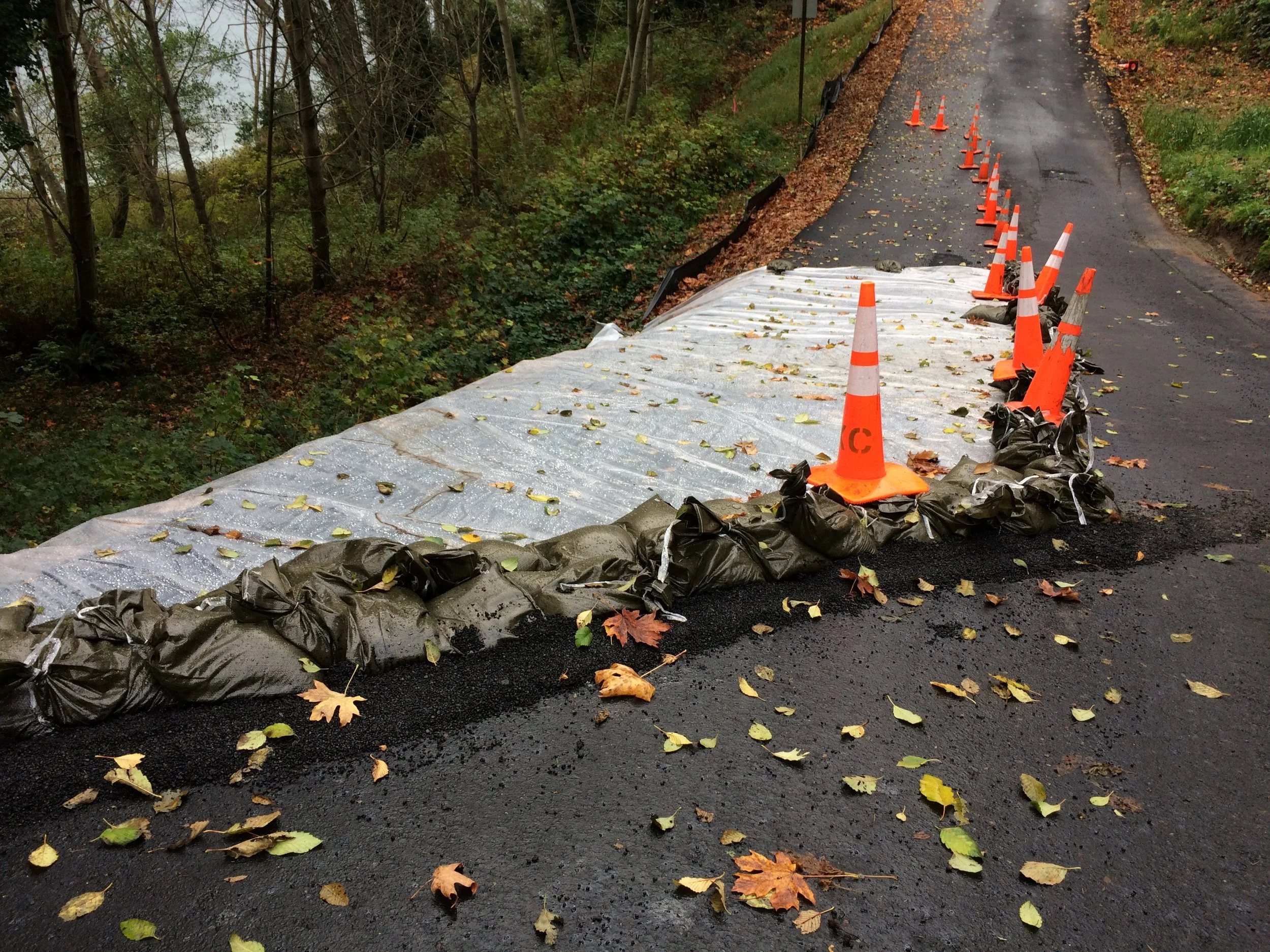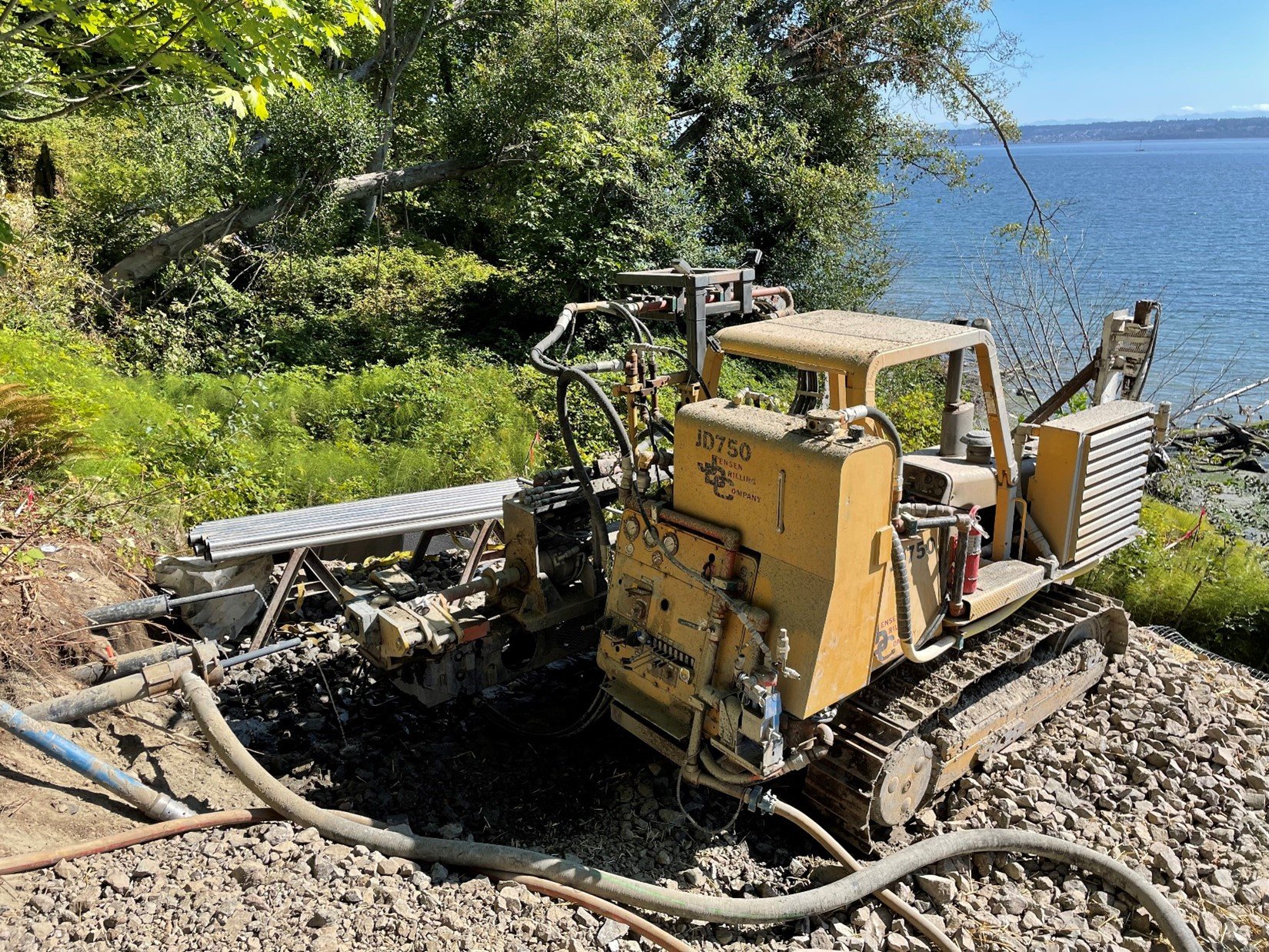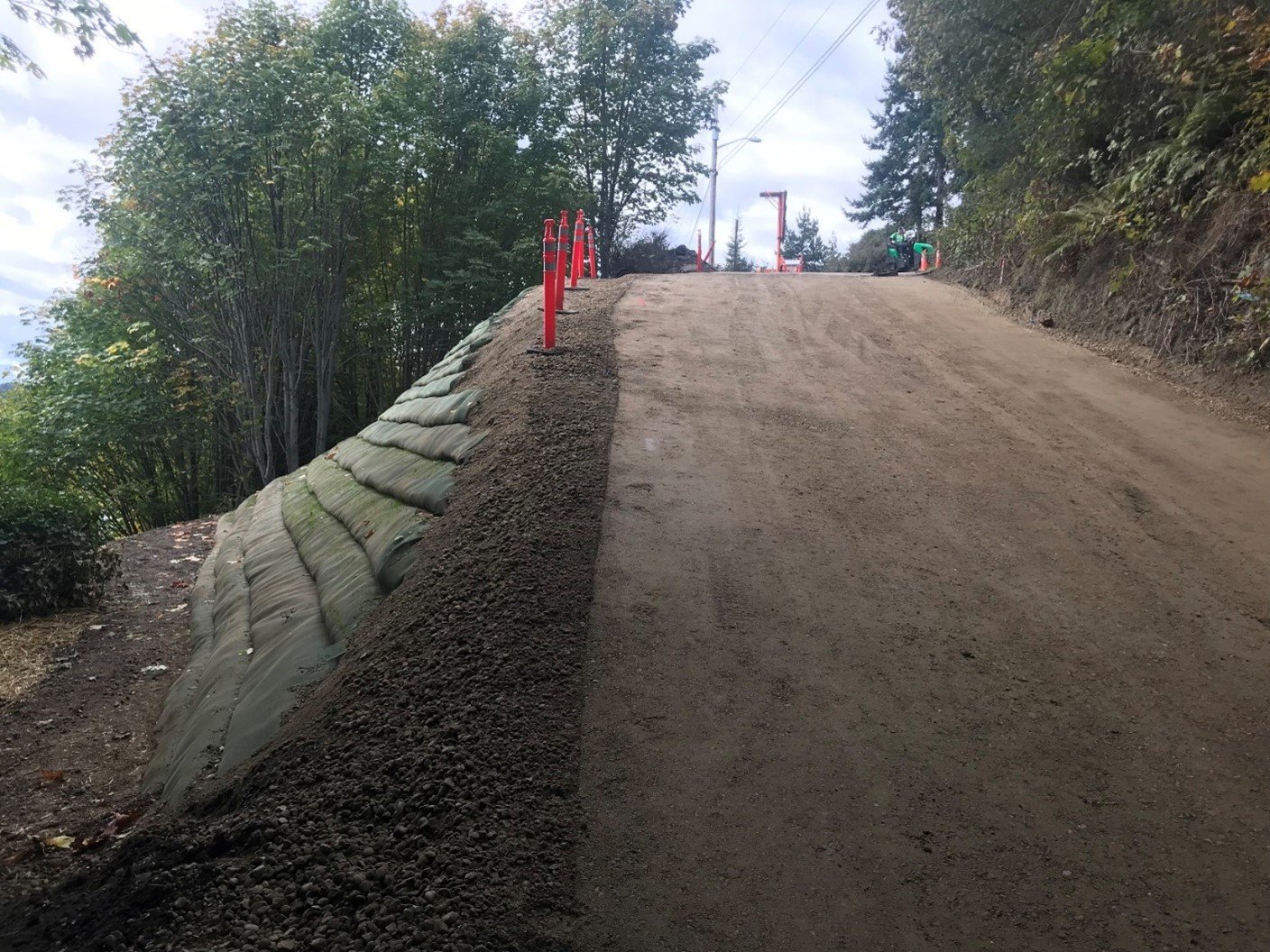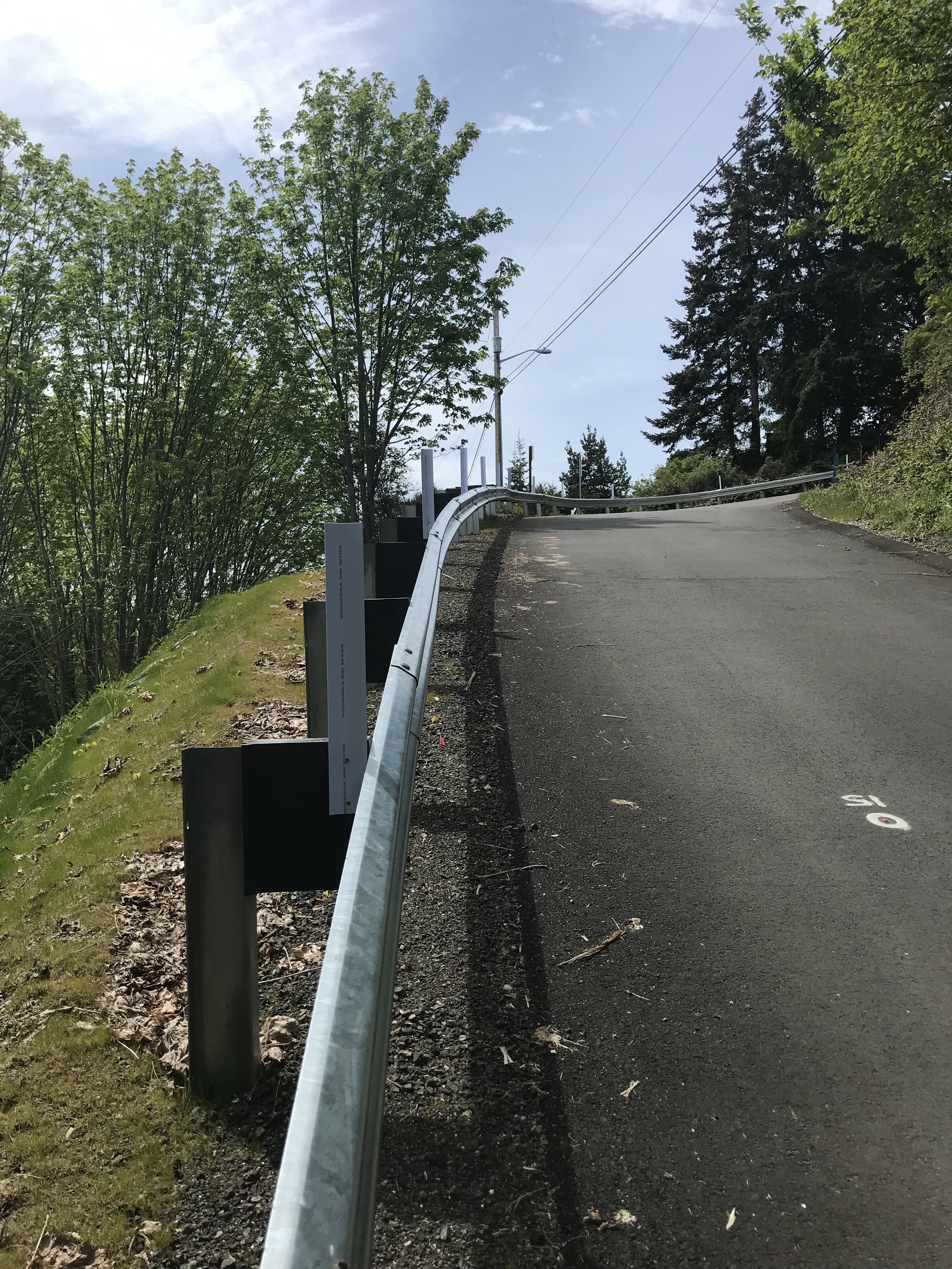Aspect joined staff from Kitsap County Public Works (County) at the American Public Works Association (APWA) Spring Conference in Tacoma to celebrate the County’s Washington Boulevard Landslide Stabilization project, which earned the APWA’s 2022 Public Works Project of the Year award in the Disaster or Emergency Construction Repair (less than $5 million) category.
Members of the Washington Boulevard Stabilization team accepting their award (from left to right): Andrew Nelson, Kitsap Public Works Director; Tina Nelson, Kitsap Senior Program Manager; Joe Rutan, Kitsap County Engineer; Tim Beachy, Kitsap Project Manager; David Dinkuhn, Parametrix Civil Engineer; Andrew Holmson, Aspect Consulting; Steve Nichols, Kitsap Construction Manager; Tom Abplanalp, Sound Pacific Construction; Phil Struck, Struck Environmental; Paije Abplanalp, Sound Pacific Construction.
Washington Boulevard traverses a steep coastal bluff along the eastern Puget Sound shoreline in Kingston, Washington, leading into the town center and regional ferry terminal. Part of the road crosses a large deep-seated landslide complex that for decades suffered failures after heavy rains, frequently cutting off the sole access to the town and emergency services for 22 homes along the road. The Washington Boulevard Landslide Stabilization project constructed a horizontal drain system, stormwater improvements, and mechanically stabilized earth (MSE) slope to stabilize the roadway and provide a reliable path to the town and services for residents.
Roadway damaged after slope movement in 2011.
Temporary roadway protection measures in place.
In the winter of 2006, a period of extreme rainfall triggered significant landslide movement and damage to the roadway. Kitsap County engaged Aspect to complete detailed geologic investigations to characterize the nature of the landslide, conduct emergency monitoring, help the County decision-makers understand the risks the landslide posed to the roadway, and to develop viable stabilization alternatives. After over a decade of active monitoring and management, the increasingly frequent road closures and need for repairs due to landslide movement prompted County decision-makers to start design and construction of the preferred stabilization alternative.
Horizontal Drain Drilling (HDD) near the steep bluff.
Aspect led design of the horizontal drain system to dewater the body of the landslide, roadway stormwater improvements to enhance collection and conveyance of stormwater on/near the roadway, and a mechanically stabilized earth (MSE) slope to achieve grade transitions at the landslide headscarp and support the roadway embankment. This solution struck an elegant balance between effective stabilization targeting the root cause of instability (elevated groundwater), an environmentally permittable, sustainable, and beneficial design, and cost.
Roadside Drainage Improvements and Roadway Base Preparation.
Final paving of road reconstruction with guardrail.
Aspect and the County worked in close collaboration with Parametrix for civil design and Struck Environmental for environmental permitting to deliver a pragmatic design meeting the project objectives, schedule, and budget. The project was successfully constructed by Sound Pacific Construction with key support from Jensen Drilling, Inc.
Senior Associate Geotechnical Engineer Andrew Holmson, PE, who has worked on the project since 2008 alongside over a dozen Aspect geologists and engineers, joined Tim Beachy, Tina Nelson, Andrew Nelson, and Joe Rutan from Kitsap County; David Dinkuhn from Parametrix; Phil Struck from Struck Environmental; and Tom and Paije Abplanalp from Sound Pacific Construction for the awards ceremony.
The full list of this year’s APWA Washington Project of the Year winners and project photos are available on their website.












